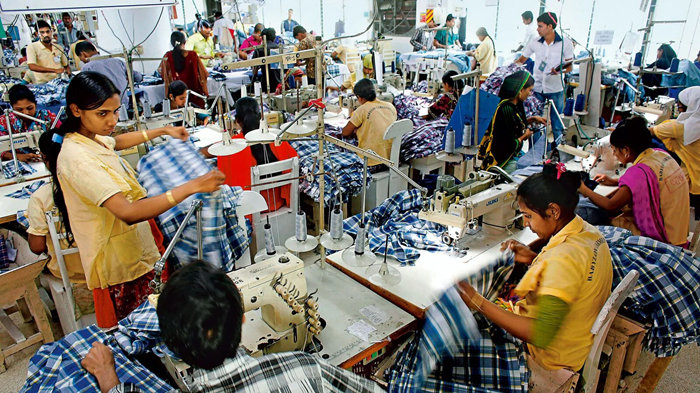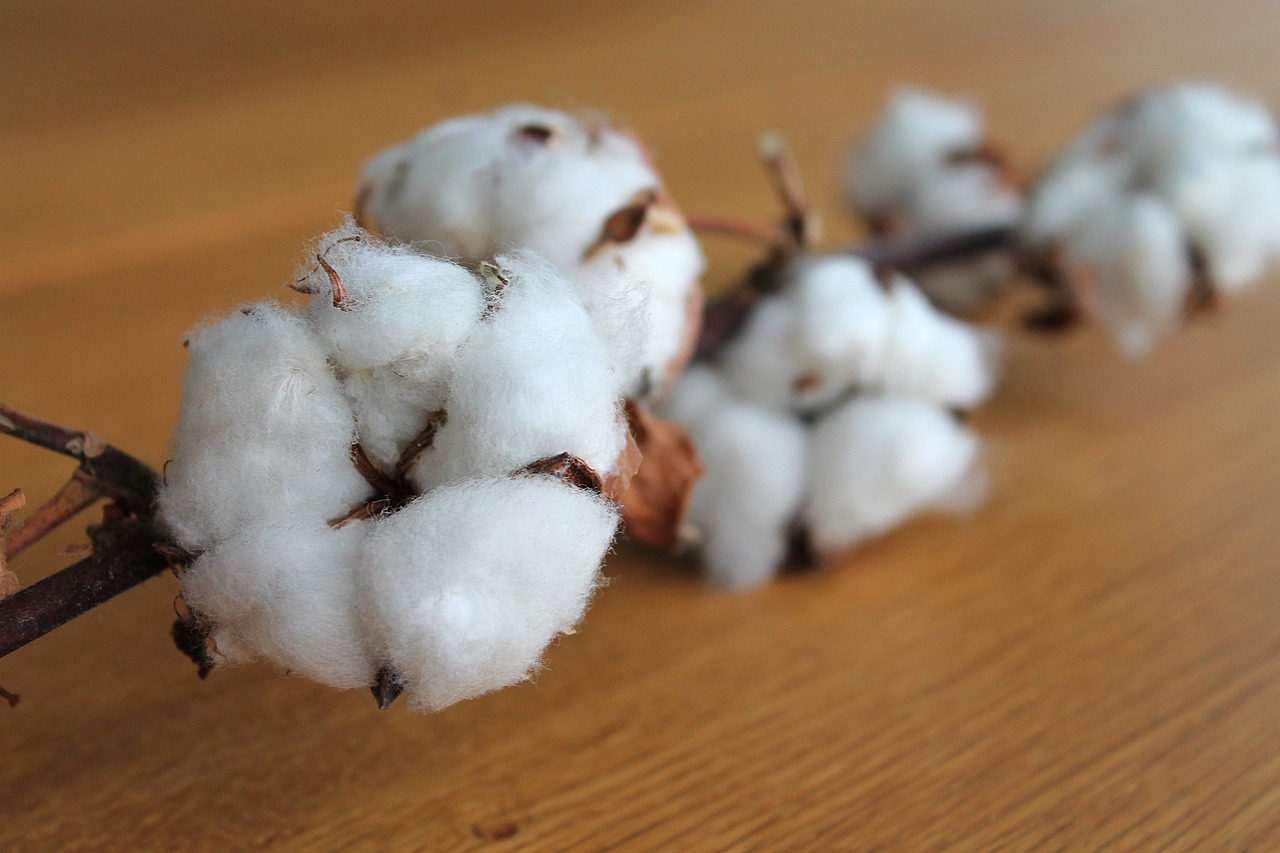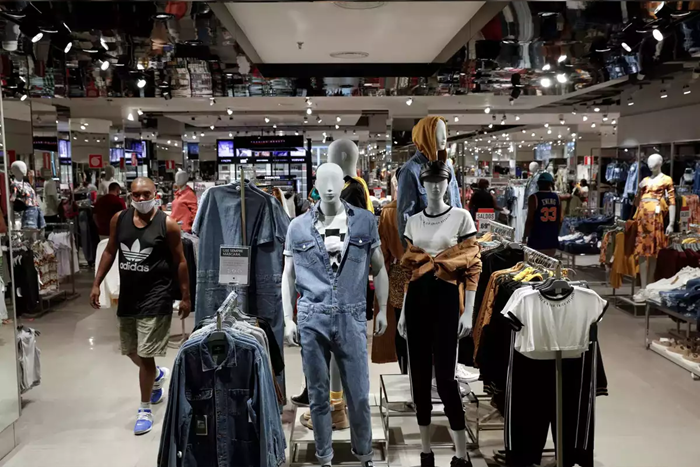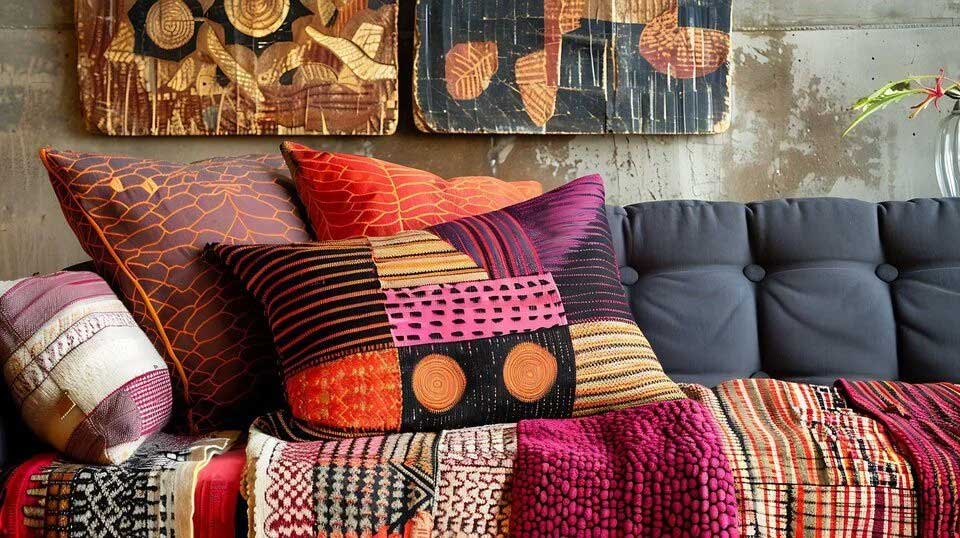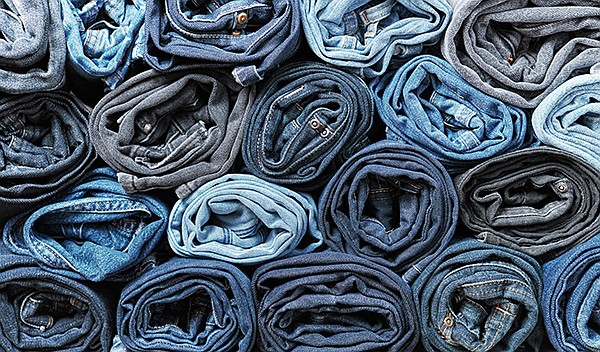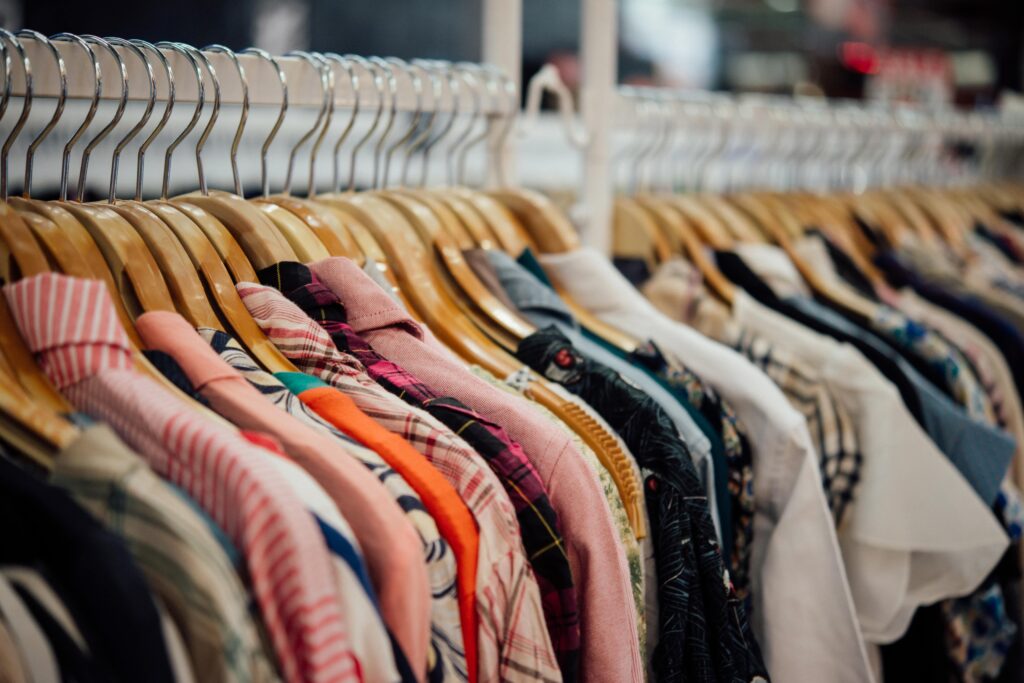FW
Pakistan's textile exports to China are in the form of low value-added fabric and yarn. China transforms the product into a higher value-added form. There has been a slowdown in Chinese demand for yarn and fabrics but Pakistan has made up for it in the value-added segment by increasing exports to European Union on the back of its new GSP Plus status. Pakistan’s yarn exports to China dropped 8.6 million kg. The country exported 43.41 million sq. mtr less fabric in January 2014 compared to January 2013.
In the value added segment, Pakistan’s exports of knitwear to EU jumped by 16 per cent between January 2013 to January 2014. Exports of bed wear increased 8.8 per cent and readymade garment exports were up 8.4 per cent. Had exports to China been normal, textile exports would have posted an overall gain of 15 per cent in January this year, over exports made during the corresponding month of the last year.
The uptrend in value-added exports shows that GSP Plus is positively impacting Pakistan. The country’s textile industry is now gearing up to capitalise on the GSP Plus status. Since the time Pakistan has got GSP, the number of summary orders has been rising.
As per figures released by the economics department at ACIMIT, the Association of Italian Textile Machinery Manufacturers, orders for textile machinery rose during the fourth quarter of 2013. It shows a 5 per cent increase compared to the previous quarter. However, on the domestic side, orders fell by 15 per cent, due to a highly critical situation for the Italian market. Exports rose by 7 per cent over the previous quarter, and remain the main growth driver for Italian manufacturers.
On an annual basis, due to the poor performance in domestic market, the overall index declined by 4 per cent compared to the 2012 average. On the export side, after a declining third quarter, sales picked up in the fourth quarter. Although they include only the first ten months of the year, the foreign trade data provided by ISTAT confirm a slight drop compared to the previous year.
To support and boost Italian textile machinery manufacturers in their global processes, ICE, Italian Trade Agency for the promotion and globalization of Italian businesses abroad, together with ACIMIT, have planned an intense promotional campaign for the industry in 2014. Promotional initiatives for Italy’s textile machinery sector will be held in 16 countries, including China and India, as well as nations and markets which already present potential business opportunities for Italian machinery builders, such as Ethiopia, Mongolia and Uzbekistan.
www.acimit.it
www.itatrade.com
For the first time, five global clothing brands and retailers have raised $40 million (over Rs 247 crores) for victims of the Rana Plaza factory disaster in Bangladesh. Activists are further campaigning to put pressure on other brands to gather funds for donations. The collapse of the Rana Plaza building in Bangladesh on April 24 last year killed over 1,100 workers and was the deadliest disaster in the history of the garment industry. It attracted global attention to the unsafe working conditions in some Bangladeshi factories, the rock-bottom wages earned by workers, and the lack of accountability and oversight on the part of importing global brands.
The companies, who have raised funds to donate include El Corte Inglés, Inditex, which includes the brand Zara, Loblaw Mango and Mascot. Now labour groups are pressurizing companies like Walmart, Children's Place and Benetton, which were linked to Rana Plaza tragedy. International Labour Organisation, which is managing the fund, has established formulas and a claims process had been established to pay lost wages, medical bills and other compensation to roughly 4,000 victims, including survivors of the factory collapse, who were injured and the families of the dead.
Two other retailers, Primark and Bonmarché, have expressed their intent to contribute, and Primark has already spent more than 3 million dollars for short-term assistance to victims. But activists insist that those not linked directly to Rana Plaza, must also pitch in.
shop.mango.com
At INDEX 2014, Switzerland which starts from April 8 to 11, 2014, Freudenberg Nonwovens will focus on individual solutions from advanced wound care to sun protection. Freudenberg has 30 years experience in the medical sector and presents a comprehensive portfolio for traditional wound care, complemented by solutions for ostomy applications. In addition the focus is on innovations, such as antibacterial finishing to the use of chitosan fibers in combination with hydro-active nonwovens for advanced wound care products.
In the hygiene segment, Freudenberg offers ultra light and skin friendly top sheets, back sheets and acquisition distribution layers for baby diapers, feminine care and adult incontinence applications. These nonwovens are comfortable thanks to the cotton like structure. Special solutions such as eco friendly ADLs complete the product portfolio for the hygiene segment.
Freudenberg has developed an ultra light product variant of Evolon with a 3D structure, a material with an soft touch and high volume, with additional cleaning efficiency of a microfilament cloth. The general purpose microfilament is used both for wet and dry applications -- for surface treatment of cars, in professional cleaning, as well as in the consumer sector as LCD wet wipes or for cosmetic wipes. Evolon has an ultraviolet protection factor of 80. So it’s an interesting option for textile manufacturers, makers of sunshades, awnings etc.
Freudenberg Nonwovens is one of the world’s largest producers of nonwovens, with 21 manufacturing and processing sites in 13 countries.
www.index14.ch/, www.freudenberg-nw.com/
In a move, which the company claims to be not politically motivated, Gaps Chairman and CEO, Glenn Murphy has raised the minimum hourly wage rate for stateside employees from $7.25 dollars to $9 dollars in June 2014. This would be further revised to $10 a year later. Recently, the White House had said that the minimum wage for federal contract workers would be raised to $10.10 an hour in 2015. President Obama has applauded the Gap move in a statement, stating a minimum wage increase would lift the incomes of more than 16 million Amherican workers.
According to the company, the increase in hourly wage rate would affect 65,000 employees by 2015. But it also said that not all these workers are currently earning the minimum wage. Murphy believes that the current wage hike is with an aim to strengthen frontline employees to further enhance an in-store experience. Gap employs 1,35,000 employees across 50 countries and currently owns six brands, including Banana Republic, Old Navy, Piperlime, Athleta and Intermix.
On the other hand, Walmart, the largest retailer and private employer in the United States has decided to stay ‘neutral’ on the wage issue since it already pays most full-time employees above 10.10 dollars (Rs 626.9). However, as per the recent report by nonpartisan Congressional Budget Office, increasing wages to 10.10 dollars would result in the loss of 500,000 jobs.
www.walmart.com
Invistas cordura Naturalle fabrics featured among ISPO Textrends Top 10 winners in membranes and outer layer categories at ISPO Munich. Developed as a forum focusing on fabric and accessory trends for the outdoor sports apparel and equipment market, ISPO Textrends Forum has become a global showplace to provide designers and product developers the latest innovations in performance fabric technology.
The lightweight, breathable and waterproof Naturalle fabric selected by the Textrends is a three-layer laminate stretch ripstop. A Hua Mao stretch dobby Naturalle fabric was also recognized as a Top 10 winner in the outer layer category, which showcases lightweight but ultra-resistant woven, stretch, waterproof, windproof and multi-layer fabrics for exceptional protection against the elements.
For Textrends at ISPO Munich 2014, fabrics and accessories were submitted by textile mills and brands for a chance to be included in the top 10 of their respective categories. An assembly of sportswear industry professionals including designers, trend experts and journalists reviewed all the submissions and evaluated each one independently on six different criteria: performance, hand, creativity, innovation, eco-sustainability, and best multi-function.
munich.ispo.com/
The US and Australian cotton industries new Cotton LEADS program is working to recapture market share for cotton against synthetic fibers. Cotton producers may soon be called in to help in that effort with their time and knowledge. The first step in this process was to develop metrics to help support the work US cotton was doing in the area of sustainability. This includes everything from improving land use efficiency to water use efficiency, improving pesticide applications, soil erosion improvement as well as reduced energy use. This was combined with increased efforts in research capabilities, efforts in agricultural research as well as textile product care.
However, this wasn’t enough. Globally, US cotton interests were still encountering resistance. Thinking they needed a partner globally, the US cotton industry led by the National Cotton Council (NCC) and Cotton Incorporated and Cotton Council International (CCI) met with the Australian cotton industry. Their metrics were very similar to US metrics, with improvements in water use and pesticide applications.
The Americans gave the Australians a proposal to jointly promote their cotton in this arena, and called it ‘Cotton LEADS’. The ultimate goal was to have brands and retailers around the world accept US and Australian cotton as part of their sourcing strategies without going for costly certification.
www.cottonleads.org/
DyStar, a leader in both product and application innovation for the textile and leather industries, has released its 2012 sustainability report. It provides an insight into DyStars progress and initiatives in view to sustainability during 2012 following the guidelines of Global Reporting Initiative GRI3.1.
On the basis of the application level criteria, the report has been self-declared as a Level B report, which also includes its performance on the UNGC UN Global Compact Ten Principles, which DyStar endorsed in 2011. Some key points include the company’s reduction of its GHG emissions by approximately 13 per cent which represents a great step towards its internal target of a 20 per cent reduction by 2020. The success of DyStar’s initiatives has affirmed the companys dedication to provide sustainable solutions and products to meet customers needs, while protecting the environment.
According to Charu Jain, DyStar s Global Sustainability Manager the company reduces its impact by being responsible in the use of resources. Also, while delivering the best quality products to its customers, the company assists them in decreasing their own environmental and social footprint through the use of clean, safe and efficient products and best available technology.
www.dystar.com
Jordan Lea has been elected the President of Cotton Council International (CCI) for the year 2014, during the organization’s board meeting held during the National Cotton Council’s (NCC) recent annual meeting. CCI is the export promotions arm of the NCC and carries out programs in more than 50 countries globally under the Cotton USA trademark.
Lea, a merchant with Eastern Trading Company in Greenville, SC, succeeds John Burch, a Bakersfield, CA, cooperative official who is now CCI Board Chairman. Lea is a past Chairman of the American Cotton Shippers Association, and serves on the Board of Directors of the NCC and The International Cotton Association.
Other CCI officers elected during the meeting are: Dahlen Hancock, Ropesville, TX as first Vice President, Keith Lucas, Garner, NC as second Vice President, Anthony Tancredi and Cordova, TN as Treasurer. Mark Lange of Cordova, TN, was re-elected as Secretary, and Kevin Latner of Washington, DC, was elected as Assistant Secretary. E. Hope (Hopie) Brooks, III, Cordova, TN; James Massey, Harlingen, TX; and Cannon Michael, Los Banos, CA, were newly elected as CCI directors for 2014.
www.cottonusa.org
Wallace Darneille, a Lubbock, TX, cooperative marketer, was elected as the Chairman of National Cotton Council for 2014 during the National Cotton Council’s (NCC) annual meeting held in Washington. Darneille, President and CEO of Plains Cotton Cooperative Association, succeeds Jimmy Dodson, a Robstown, TX, cotton producer as Chairman.
Darneille has a long record of outstanding service to the NCC and to the US and global cotton industries. This past year, he served as NCC Vice Chairman and was the Chairman of Cotton Council International (CCI) in 2011, after serving as its President in 2010. He also served as Chairman of the National Council of Textile Organizations in 2009-2010, and was President of the Liverpool, England-based International Cotton Association in 2007.
Previously, he was President of the Texas Cotton Association, as a member of the Executive Committee of the National Council of Farmer Cooperatives, and as a board member of CCI, the American Cotton Shippers Association, the Texas Agricultural Coop Council, Telmark, Denimatrix and The Seam.
Other office bearers elected to serve the NCC in the coming year include: Sledge Taylor, Como, MS as Vice Chairman, Clyde Sharp, Roll, AZ as Secretary-Treasurer, Joe Nicosia, Cordova, TN as Vice President, Coalter Paxton, III, Wilson, NC as Vice President (Warehousers), Meredith Allen, Greenwood, MS as Vice President (Cooperatives), Sid Brough, Edroy, TX as Vice President (Ginners), John Fricke, Pine Bluff, AR as Vice President (Cottonseed) and Anderson Warlick, Gastonia, NC as Vice President (Textile Manufacturers).
www.cotton.org

